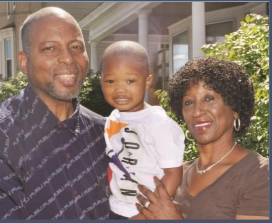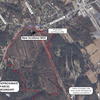Simpson says America must come to grips with the legacy of racism
Merton D. Simpson has always had a sense of his African ancestry and his Blackness.
He was born in Charleston, South Carolina and raised in Brooklyn so he says he’s always known the deep divisions in the United States.
“My mother has just turned 89 years old and she’s a master teacher,” says Simpson in this week’s podcast.
As a first-born son, he has his father’s name. “My father was one of the foremost African art dealers in the world. He also was at the vanguard of the expressionist art movement with Picasso and Romare Bearden,” says Simpson. His father was an artist himself and also a jazz musician.
Simpson is an Albany County legislator, representing Arbor Hill, Sheridan Hollow, Washington Park, and West Hill.
He came to Albany in 1978 “for a job” — as a senior minority group personnel specialist for Civil Service.
“My job was to get employment in New York State government for Blacks and Hispanics who had been traditionally neglected by Civil Service,” said Simpson.
As a lead plaintiff in a federal lawsuit, Simpson v. New York State Department of Civil Service, Simpson won a long legal battle, securing a $45 million settlement for more than 4,000 Black and Hispanic state workers and job applicants who claimed a Civil Service test was biased.
The litigation stretched from 1997 to 2010. “It was a long but historic and necessary fight ….,” said Simpson. “People were promoted on the basis of a test that didn’t legitimately test their knowledge, skills, and abilities and also was tremendously discriminatory.”
He also said, “Had I not stopped that test, it would have been used in every state in the country.”
While a friend continually encourages Simpson to run for Congress, he said, “I can do more in the Albany County Legislature in real terms than I could in Washington because of the tremendous gridlock.”
He recently spoke passionately at a legislative committee meeting on expanding the county’s version of the CROWN Act and elaborated on that with The Enterprise. (See related editorial.) CROWN stands for Creating a Respectful and Open Workplace for Natural hair.
“When it comes to the CROWN Act, what we see is another manifestation of the denial of the legacy of racism in America,” said Simpson. The committee was discussing adding headcoverings to the list of protected hairstyles, which Simpson described as “a longstanding feature of Black people in America and that’s a cultural transition from our history in Africa.”
He went on, “We actually have present situations here in Albany County where people have been denied employment rights or been treated in an inappropriate way because of their hair preferences, which has nothing to do with their ability to do their job.”
He recognized there could be jobs where certain hairstyles would present a hazard but said, “When it comes to a question of: well, you just think it’s nice to have short hair, then that’s a problem.”
Traditional black hairstyles can help some people do their jobs better, says Simpson, stating that the New York City Police Department for many years has not had restrictions on how Black officers wear their hair.
“In many communities, to see people who have sort of indigenous hairstyles endear them to the community,” said Simpson.
He’s an advocate of community policing done by people who are part of the community “because there’s a knowledge, understanding, and a commitment to that community.”
Simpson goes on, “White police officers who don’t live in the community who come in often serve more as an occupying force.”
Discrimination based on hairstyles are part of a larger problem, says Simpson, going back to the introduction of Black people to the Americas. “There are just different standards of beauty …,” he said. “There’s been a whole movement in rationalization of enslavement to try to prove that people of color, Black people in particular, we’re less human and therefore less deserving of human rights than white people. And of course this was all based on the profit motive of slavery.”
While slavery has been an ongoing condition in history worldwide, Simpson notes, “There’s a unique element to the enslavement of African Americans because, if you go back to the days of Rome, when you had gladiators, people were not considered not human beings. Slavery was an artifact of war and conflict but people could buy or win their way back to freedom.”
With the enslavement of African Americans, he notes, “Human beings were actually reproduced for economic benefits and a whole civil war was fought explicitly over slavery. People in the South want to say it was just southern tradition but the tradition was the tradition of slavery.”
America has never come to grips with the legacy of race, says Simpson. He draws a parallel between Donald Trump’s effect on the pandemic in the United States and his effect on racism. While Trump didn’t cause the coronavirus, he “supersized” it, says Simpson, by not acting responsibly, say, with mask-wearing and by spreading misinformation.
Similarly, Simpson says, “Donald Trump has made it acceptable for the Klan to take their hoods off.”
He goes on, “Donald Trump has taken latent racist traits and made them acceptable and actually made them perceived to be, by his cult, an appropriate patriotic response to the canard that the election was actually stolen.”
Simpson sees the CROWN Act as part of what is needed to stop the abuses that “Black people suffer because of the mis-history, the disinformation about what has happened in our legacy.”
The communities he represents, says Simpson, have low voter turnout.
“It’s because government has not served people and people are struggling for day-to-day survival,” says Simpson. “But people have to understand, as bad as things are, they can get worse.
“We’re in a historical turning point, the likes of which we may not survive unless we’re really conscious …. We’re one election away from having our whole experiment thwarted,” he said of democracy.
“If and when some of the initiatives on the human infrastructure are implemented, that will give people hope,” said Simpson. “What happens historically is people don’t stand up when they’re beaten down. People stand up when they’re given a little bit of hope.”



